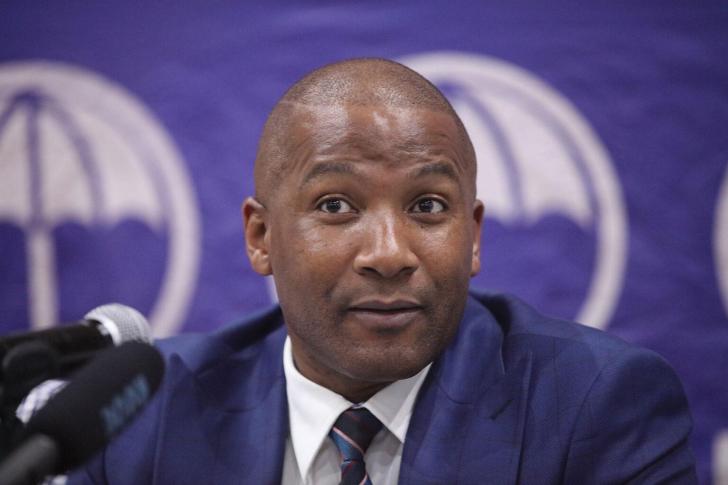News / National
Botswana to document Zimbabwean nationals
12 Dec 2024 at 06:44hrs |
0 Views

Botswana will soon regularize the stay of undocumented Zimbabweans living within its borders, with President Duma Boko highlighting the skilled human resources from Zimbabwe as an asset that the country can leverage.
Preliminary estimates suggest that approximately 150,000 Zimbabweans reside in Botswana. Efforts are underway to document these individuals, a process welcomed by the Zimbabwean government.
In an interview yesterday, Zimbabwe's Ambassador to Botswana, Henry Mukonoweshuro, applauded President Boko's initiative, which aims to grant undocumented Zimbabweans official status.
“We welcome the pronouncements by the new President Advocate Duma Boko, that his idea is to actually have a number of undocumented Zimbabweans being documented and regularized because it is better to have regularized people whom you can trace and trust and also who can actually now seek jobs,†Mukonoweshuro said.
He added, “There is an acknowledgment by our hosts that our people are well-trained, well-skilled, and they have commitment. This is a positive trajectory that we welcome, and we are willing to work with the authorities to ensure that we have some sort of special dispensation akin to the one given to Zimbabweans in 2009 in South Africa. We are working out a similar format.â€
Ambassador Mukonoweshuro disclosed plans to meet with Botswana's Minister of Immigration and Human Rights to formalize the President's pronouncement.
“I am yet to meet the new Minister of Immigration and Human Rights as well as the Permanent Secretary in that office to try and actualize the words by the President,†he stated.
Turning to consular services, Mukonoweshuro noted that the Zimbabwean Embassy in Gaborone serves a significant number of nationals daily. Services offered include passport renewals, new passport applications, birth certificate issuance, and assistance with permit-related documentation.
“On a good day, especially towards holidays, we serve upwards of 100 people a day, sometimes 150, particularly when school children are on holiday. They are coming for different things like passport renewals, new passports, birth certificate applications, and assistance for those who have deceased relatives. Sometimes it's a requirement that the embassy writes papers to authenticate documents,†he explained.
The embassy is also compiling a comprehensive list of Zimbabweans living in Botswana to aid in the regularization process.
In a separate interview, Dr. Brighton Hurombo, a Zimbabwean lecturer at the University of Botswana, praised the embassy's efficiency.
“I am very happy with the services and quality of service being offered here. Today I had come to the Embassy to inquire about my driver's license, and I was very much assisted. Now I will be traveling to Harare for the holidays with no problems,†he said.
The initiative to document undocumented Zimbabweans is seen as a significant step towards ensuring that skilled workers contribute to Botswana's economy while maintaining strong bilateral ties between the two nations.
Preliminary estimates suggest that approximately 150,000 Zimbabweans reside in Botswana. Efforts are underway to document these individuals, a process welcomed by the Zimbabwean government.
In an interview yesterday, Zimbabwe's Ambassador to Botswana, Henry Mukonoweshuro, applauded President Boko's initiative, which aims to grant undocumented Zimbabweans official status.
“We welcome the pronouncements by the new President Advocate Duma Boko, that his idea is to actually have a number of undocumented Zimbabweans being documented and regularized because it is better to have regularized people whom you can trace and trust and also who can actually now seek jobs,†Mukonoweshuro said.
He added, “There is an acknowledgment by our hosts that our people are well-trained, well-skilled, and they have commitment. This is a positive trajectory that we welcome, and we are willing to work with the authorities to ensure that we have some sort of special dispensation akin to the one given to Zimbabweans in 2009 in South Africa. We are working out a similar format.â€
Ambassador Mukonoweshuro disclosed plans to meet with Botswana's Minister of Immigration and Human Rights to formalize the President's pronouncement.
Turning to consular services, Mukonoweshuro noted that the Zimbabwean Embassy in Gaborone serves a significant number of nationals daily. Services offered include passport renewals, new passport applications, birth certificate issuance, and assistance with permit-related documentation.
“On a good day, especially towards holidays, we serve upwards of 100 people a day, sometimes 150, particularly when school children are on holiday. They are coming for different things like passport renewals, new passports, birth certificate applications, and assistance for those who have deceased relatives. Sometimes it's a requirement that the embassy writes papers to authenticate documents,†he explained.
The embassy is also compiling a comprehensive list of Zimbabweans living in Botswana to aid in the regularization process.
In a separate interview, Dr. Brighton Hurombo, a Zimbabwean lecturer at the University of Botswana, praised the embassy's efficiency.
“I am very happy with the services and quality of service being offered here. Today I had come to the Embassy to inquire about my driver's license, and I was very much assisted. Now I will be traveling to Harare for the holidays with no problems,†he said.
The initiative to document undocumented Zimbabweans is seen as a significant step towards ensuring that skilled workers contribute to Botswana's economy while maintaining strong bilateral ties between the two nations.
Source - the herald
Join the discussion
Loading comments…












































